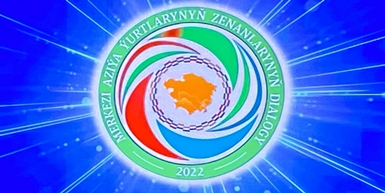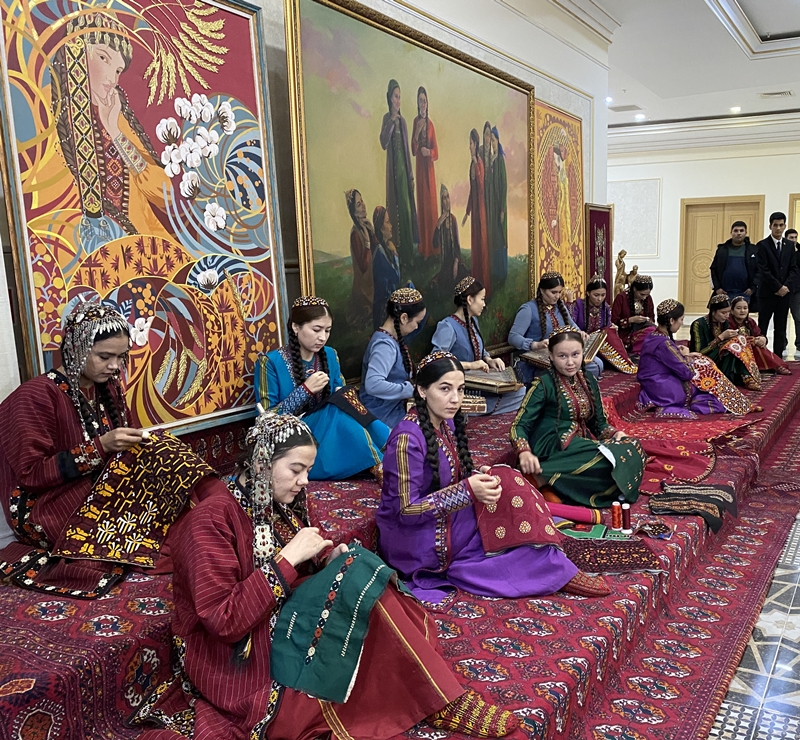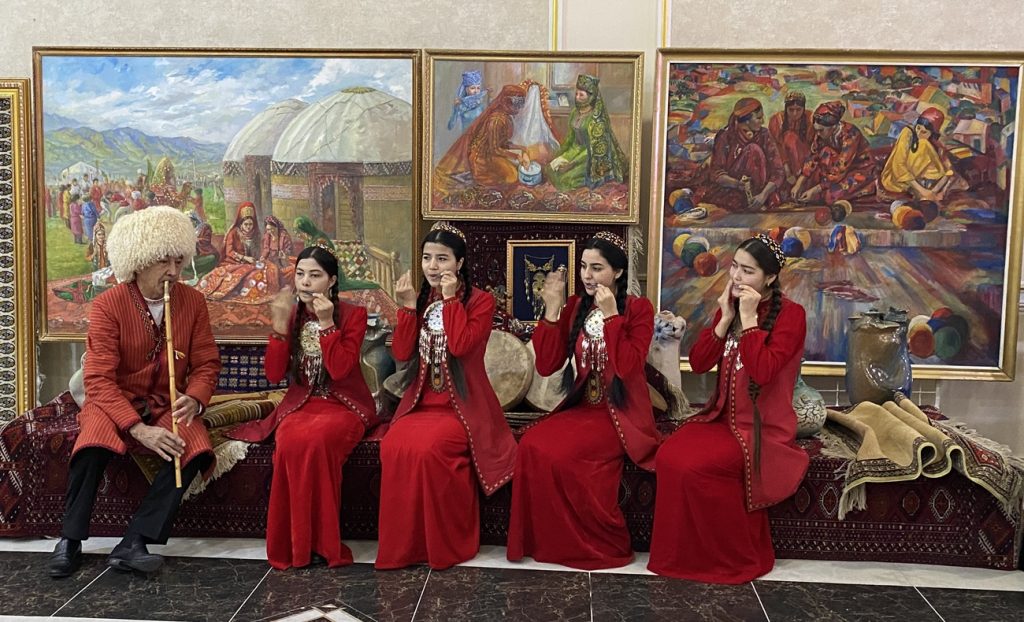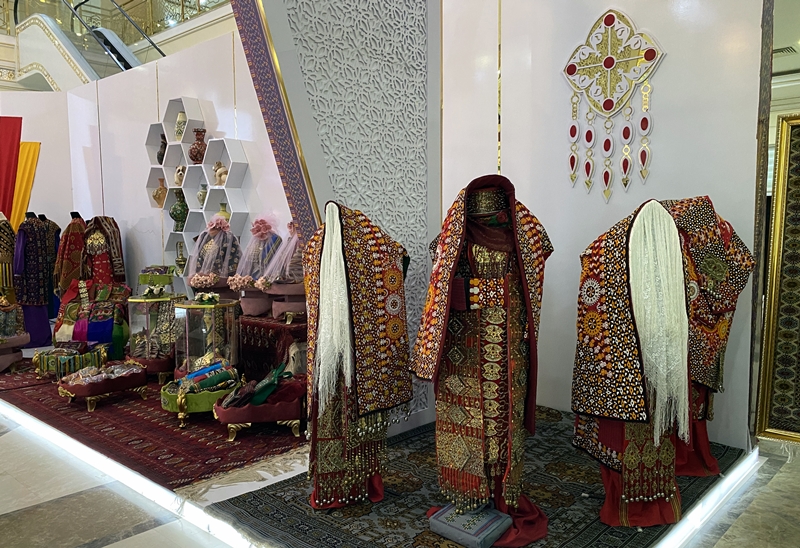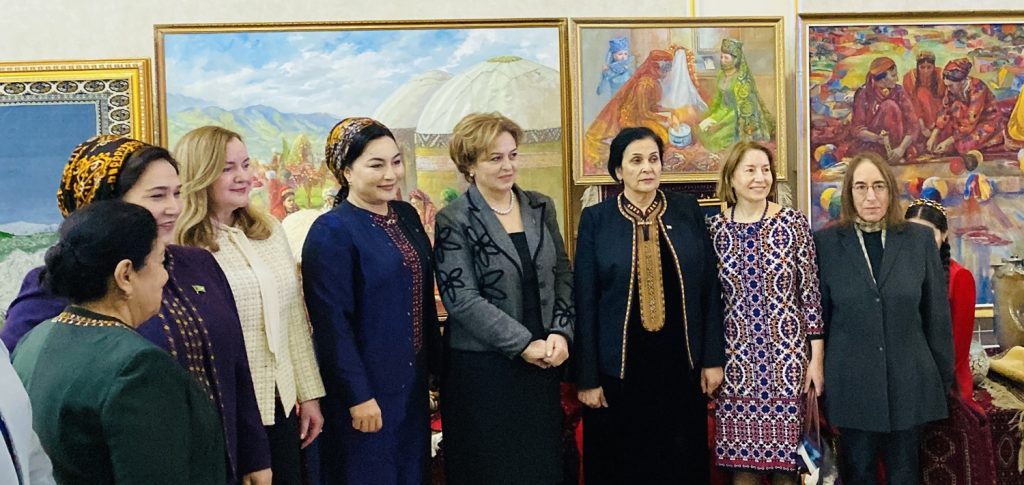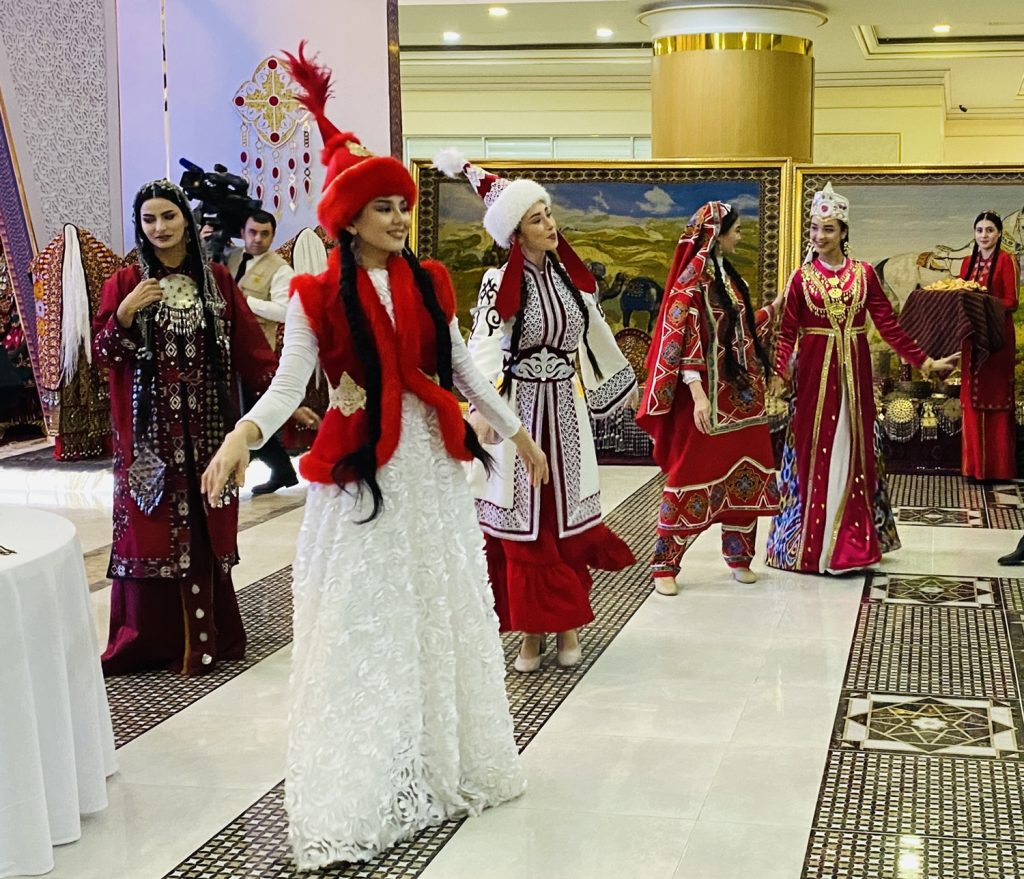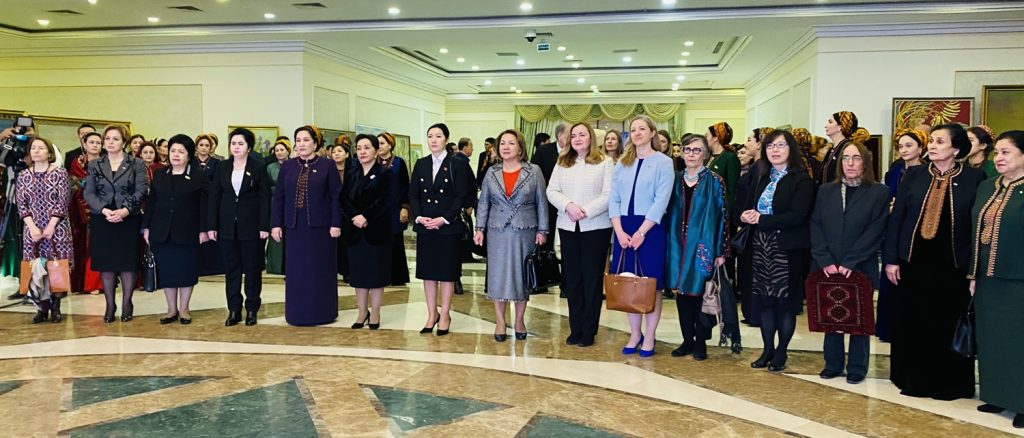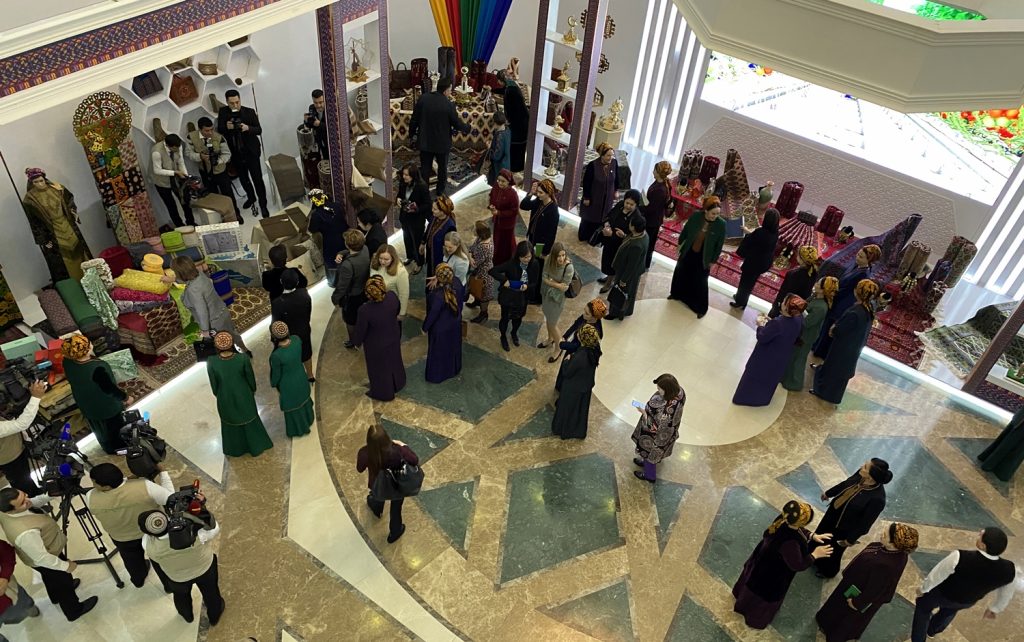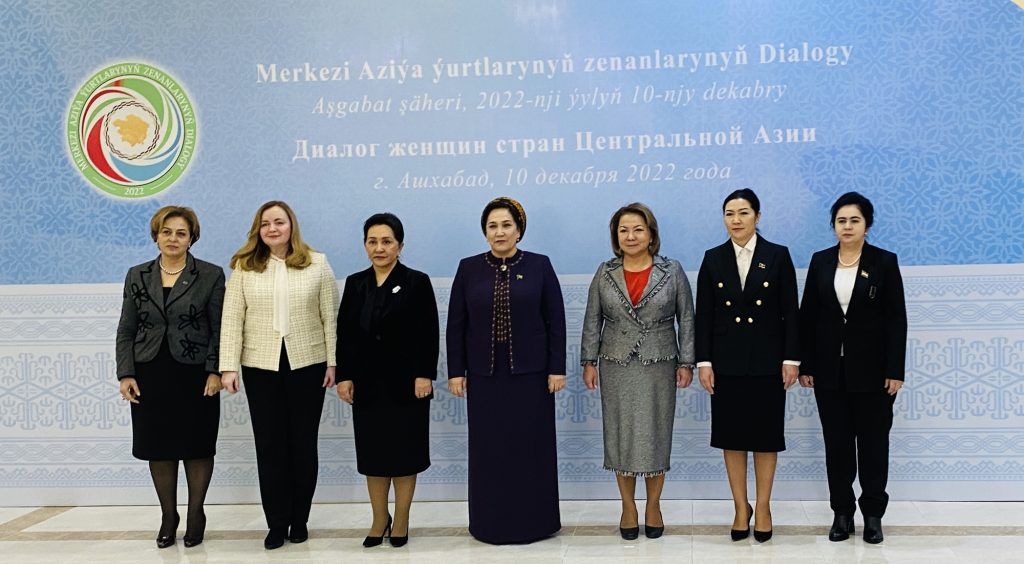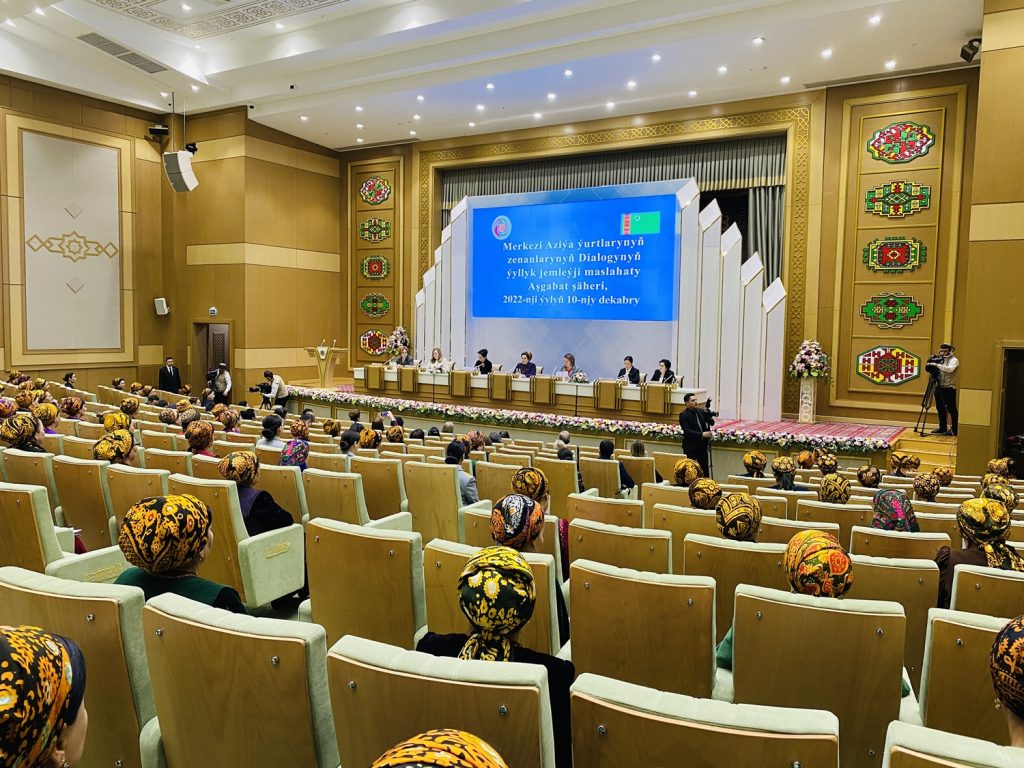Elvira Kadyrova
On Saturday, 10 December 2022, the delegations from five central Asian countries met in the Ashgabat Center of Public Organizations at the regional Women’s Dialogue to take stock of the year.
The meeting was attended by:
- Gulshat Mammedova, Chairman of the Mejlis of the Milli Gengesh of Turkmenistan
- Tanzila Narbayeva, Chairman of the Senate of the Oliy Majlis of Uzbekistan
- Jamila Isaeva, Deputy Speaker of the Jogorku Kenesh of Kyrgyzstan
- Balaim Kesebayeva, Deputy Chairman of the Majilis of the Parliament of Kazakhstan
- Khilolbi Kurbonzoda, Chairman of the Committee on Women and Family Affairs under the Government of Tajikistan
- Natalia Gherman, Special Representative of the UN Secretary-General and Head of the UN Regional Center for Preventive Diplomacy for Central Asia (UNRCCA)
- Narine Sahakyan, UNDP Resident Representative in Turkmenistan
As Gulshat Mammedova, speaker of the lower house of parliament of Turkmenistan, noted in her welcoming speech, the outgoing year has become a landmark in the history of the Central Asia Women’s Dialogue.
This year, the Women’s Dialogue held a number of important events to promote gender equality. They include the Interparliamentary Forum of Central Asian countries and Russia, the Dialogue of Women of Central Asian countries and the Russian Federation, held in May this year on the initiative of Turkmenistan. Mammedova recalled that the final documents of these meetings were adopted as official documents of the UN General Assembly 76th session.
“These events positively influenced the consolidation of efforts to develop the activities of parliamentarians of the Central Asian states and the Russian Federation on the issue of women, and also contributed to the promotion of women’s cooperation in the development of a culture of peace and trust,” she stressed.
Another notable outcome in the work of the Dialogue was its institutionalization and expansion of the range of activities, as mentioned by the head of the UNRCCA Natalia Gherman.
The Dialogue focused on critical issues such as women’s roles in mitigating the harmful effects of climate change, combating terrorism and violent extremism, eliminating gender-based violence, and fostering cooperation to preserve shared cultural heritage. Work continues to build up women’s economic potential and economic partnership”, Gherman said.
It is noteworthy that the voice of the Dialogue also sounds at the global level. In this regard, the SRSG recalled the participation of the founders of the CA Women’s Dialogue in the session of the UN Peacebuilding Commission held on 11 November 2022 in New York. In her remarks, she thanked Turkmenistan’s Permanent Representative to the UN, Aksoltan Atayeva, for her cooperation and active role in convening this historic meeting, where the theme of the Central Asian nations were raised for the first time. The outcome of this session was a statement of support for the CA Women’s Dialogue’s activities.
The UNDP Resident Representative in Turkmenistan Narine Sahakyan, welcoming the Dialogue participants, emphasized: “The UN Development Program is an active partner of the Dialogue. UNDP attaches great importance to the socio-economic and political role of women in Central Asia, who can influence and manage transformational changes in societies to achieve key goals, including the SDGs.”
She rightly noted that “Gender equality is a fundamental basis for achieving a world that is peaceful, wealthy, and sustainable for all. We will never accomplish the goals of the 2030 Agenda for Sustainable Development unless we improve the role of women and ensure their full participation in society.”
Then the heads of the delegations of Turkmenistan, Uzbekistan, Kyrgyzstan, Kazakhstan, Tajikistan made reports. They briefly highlighted the achievements in the implementation of national strategies to promote gender equality in their countries, voiced urgent problems and tasks to be solved.
Women’s Dialogue, as a platform to advance gender equality values, is widely acknowledged to be especially essential for a variety of interrelated reasons. Gender equality is one of the factors that directly affect the well-being and harmony in society, the harmonious development of future generations. The Women’s Dialogue via the consolidation of the role of women in communities ultimately helps to the formation of a climate of trust throughout the region, and hence to the prosperity of Central Asia as a whole.
The chairmanship of the Central Asia Women’s Dialogue for the coming year has passed from Turkmenistan to Kazakhstan.
In this regard, Deputy Chairman of the Majilis of the Parliament of Kazakhstan Balaim Kesebayeva shared plans for the future presidency.
Kazakhstan has developed a draft action plan, which is open for proposals by all participating countries, and will be approved in January 2023 at the first meeting of the Dialogue.
Kazakhstan is ready to focus on existing issues while also exploring promising areas of gender issues.
According to Kesebayeva, the Kazakhstan’s chairmanship will prioritize issues of education in the digital age in the context of achieving gender equality, issues of early childhood development, the launch of a regional mechanism for Central Asian countries to eradicate all forms of gender inequality against women and girls, and strengthening the role of women’s leadership in the fight against climate change.
The meeting ended with adoption of a final communique.
The Central Asian Women’s Dialogue was established with the support of the UN Regional Center for Preventive Diplomacy for Central Asia and UNDP in December 2020 as a platform for expanding women’s involvement in political, economic and social life. In the first year of activity, Uzbekistan presided over the Dialogue, in 2022 Turkmenistan was the chairing nation. ///nCa, 10 December 2022
Here are some photos from the event:
